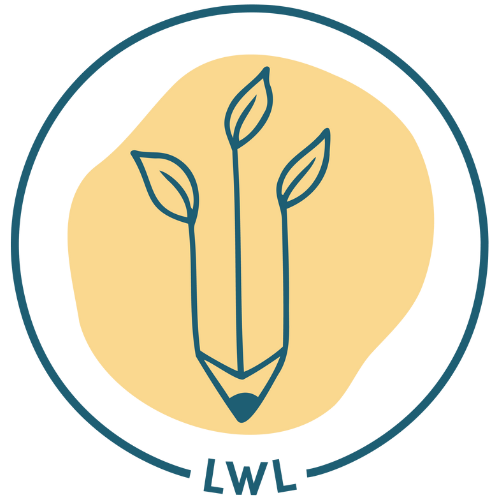A Beginner’s Guide to French Greetings
Mastering the Art of French Greetings
Welcome to the wonderful journey of learning French greetings! If you're in Vancouver and thinking about enriching your child's language skills, understanding how basic greetings in French is a great place to start! This guide, designed for young learners, the simple yet essential greetings that form the basis of every conversation. LWL Education's early French classes in Vancouver provide an engaging and comprehensive approach to help your child begin their linguistic adventure.
The Importance of Greetings in French Culture
Greetings are more than mere words in French culture; they're an entryway into a world of courtesy and respect. They set the tone for every interaction, making understanding and using them correctly an essential part of learning the language. LWL Education emphasizes the cultural importance of greetings in its curriculum, ensuring that young learners appreciate and utilize proper greetings from the very start.
List of 15 Basic French Greetings
A solid understanding of basic greetings is essential for any young learner starting with the French language.
Here's a comprehensive list of greetings that your child will likely encounter and use in their early French classes in Vancouver:
Bonjour (Hello/Good Morning/Good Day): The universal French greeting suitable for all times of the day until evening.
Bonsoir (Good Evening): Used during the evening hours, this greeting is ideal as the day turns to night.
Salut (Hi/Hey): Informal and friendly, perfect for greeting peers and friends.
Salut (Bye!): This can also be used as an informal goodbye, often used among friends.
Coucou (Hey there): Very informal and playful, often used among close friends and family members.
Bienvenue (Welcome): Used to greet someone arriving at a place or joining a group.
Enchanté(e) (Pleased/Nice to meet you): Polite expression used when meeting someone for the first time.
Comment ça va? (How's it going/How are you?): A casual way to ask someone about their well-being.
Ça va? (Is it going well/OK?): An even shorter version of "Comment ça va?", often used among friends.
Tu vas bien? (Are you doing well?): Similar to "Ça va?" but slightly more personal.
Comment allez-vous? (How are you? [formal]): Formal way to inquire about someone's well-being, suitable for adults or in respectful situations.
Comment vas-tu? (How are you? [informal]): A less formal way to ask someone how they are doing, typically used among peers or friends.
Allô? (Hello?): Primarily used when answering the phone to greet the caller.
Quoi de neuf? (What's new?): Informal way of asking someone if there is anything new or noteworthy with them.
Au revoir! (Goodbye!): The standard farewell, suitable for most situations.
LWL Education's early French classes in Vancouver are designed to familiarize children with these greetings, teaching them through fun and interactive methods that keep them engaged and excited about learning.
Formal vs. Informal Greetings
The distinction between formal and informal greetings is an important aspect of the French language and culture. LWL Education's curriculum introduces young learners to this concept early on, helping them understand when and how to use "Bonjour" and "Bonsoir" versus "Salut," depending on the social context. This understanding is critical in helping children adapt their greetings appropriately.
Greeting Like a Native: Pronunciation and Practice
Good pronunciation is essential for effective communication in French. LWL Education employs native French speakers and utilizes audiovisual materials to ensure that children hear and practice authentic pronunciation. Songs, rhymes, and interactive language apps are part of the learning experience, making pronunciation practice enjoyable for young learners.
Do's and Don'ts of French Greetings
LWL Education not only focuses on language but also immerses students in the cultural context of French greetings. Children learn the appropriate use of greetings in various scenarios, understanding the cultural nuances and showing respect in their interactions. This holistic approach ensures that students don't just speak French but understand and appreciate the culture behind the language.
Expanding Your Vocabulary: Beyond Hello and Goodbye
As children progress in LWL Education's early French classes, they are encouraged to expand their vocabulary beyond basic greetings. More advanced phrases are introduced, allowing children to engage in simple conversations and improve their vocabulary. This not only enhances their conversational ability but also boosts their confidence in using the French language.
Early French Classes in Vancouver BC
Introducing your child to French greetings through LWL Education's early French classes in Vancouver is an investment in their linguistic and cultural education. As they learn to navigate the world of French communication, they gain valuable skills that open doors to new friendships, experiences, and understanding. Embark on this exciting educational journey with your child and watch as they grow into confident and culturally aware individuals.
If you're ready to give your child the gift of language, explore LWL Education's early French classes in Vancouver. Our engaging, child-centred approach ensures that learning French is a fun and rewarding experience. Visit LWL Education today to learn more about our programs and how we can support your child's journey into the French language.

